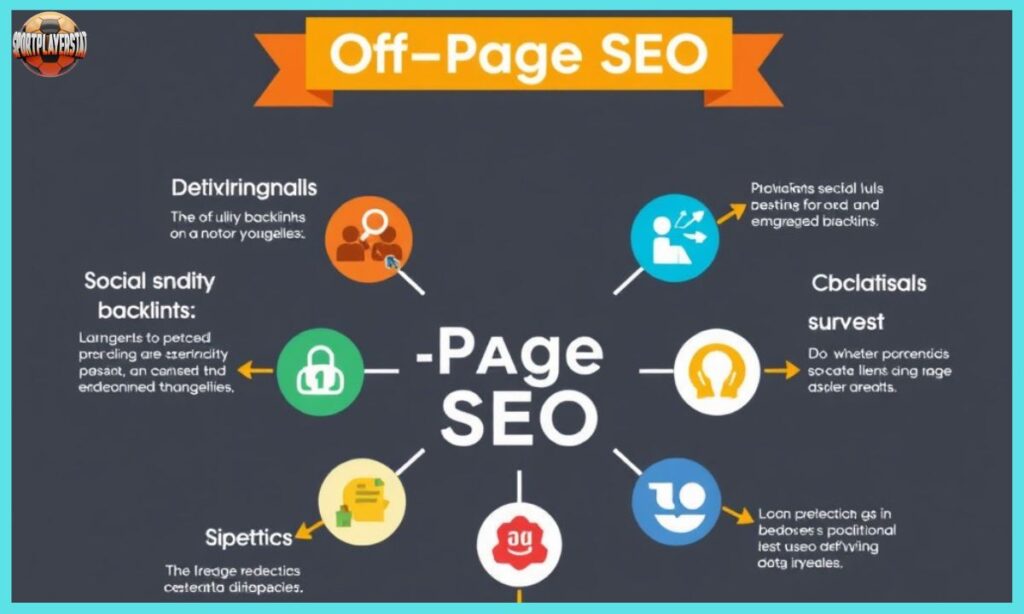In today’s digital landscape, having a solid online presence is crucial. Achieving a spot on the first page of Google search results is one of the most sought-after goals.
Many businesses and individuals strive for this visibility. In this article, we will uncover effective strategies to help you secure a top ranking on Google, inspired by the expertise of SEO specialist David Aziz.
The Importance of Ranking on the First Page of Google
Ranking on the first page of Google is vital for numerous reasons.
- Increased Visibility: Over 90% of users do not go past the first page of search results. This means that being on that page significantly boosts your visibility.
- Higher Traffic: A higher position translates to more organic traffic. More visitors can lead to increased conversions and sales.
- Trust and Credibility: Websites that rank higher are often seen as more trustworthy. Users associate top rankings with authority in the field.
- Better ROI: Organic traffic is cost-effective compared to paid advertising. Achieving high rankings can provide a better return on investment.
Understanding these factors is essential. The competition is fierce, but with the right strategies, you can achieve your goal.
Step-by-Step Guide on How To Get on First Page of Google Search David Aziz
David Aziz emphasizes a strategic approach to SEO. Following a systematic process is key to securing a first-page ranking.
1. Conduct Comprehensive Keyword Research
Keyword research is the foundation of any successful SEO strategy. It involves identifying the terms and phrases potential customers are searching for.
- Use Keyword Research Tools: Tools like Google Keyword Planner and SEMrush can help you find high-volume keywords.
- Focus on Long-Tail Keywords: Long-tail keywords are more specific and often less competitive. They can lead to higher conversion rates.
- Competitor Analysis: Analyze competitors to identify keyword gaps. This can reveal opportunities for your content.
Effective keyword research sets the stage for successful optimization. It allows you to create content that resonates with your audience.
Keyword Integration Tips
Once you have identified your target keywords, integrating them is crucial.
- Title Tags: Ensure your keywords appear in the title tag.
- Meta Descriptions: Include keywords in the meta description to improve click-through rates.
- Headers and Body Content: Use keywords naturally throughout your content. Avoid keyword stuffing, which can harm your rankings.
Proper keyword integration is essential for optimizing your content. It helps search engines understand what your page is about.
2. Optimize Your On-Page SEO
On-page SEO refers to the elements you control on your website. This includes optimizing various aspects to align with Google’s ranking criteria.
A. Title Tags and Meta Descriptions
Title tags and meta descriptions are critical for SEO. They influence both rankings and click-through rates.
- Craft Compelling Titles: Use your primary keyword in the title. Make it engaging to attract clicks.
- Write Descriptive Meta Tags: Include keywords and provide a clear summary of your content.
Optimizing these elements can significantly improve your visibility in search results.
B. Content Quality and Structure
High-quality content is paramount. Google rewards informative and well-structured content.
- Understand User Intent: Tailor your content to meet what users are searching for.
- Use Clear Language: Write in an engaging and easy-to-understand manner.
- Break Up Content: Use headings and subheadings to improve readability.
Quality content keeps readers engaged and encourages them to explore more of your site.
C. Improve Page Speed and Mobile Responsiveness
Page speed and mobile responsiveness are crucial factors in SEO.
- Optimize Load Times: Use compressed images and efficient coding to improve speed.
- Mobile Optimization: Ensure your website is mobile-friendly. A responsive design caters to all devices.
A fast, mobile-friendly site enhances user experience and can improve rankings.
Read More:Kokomo Scanner: Everything You Need to Know for Local Insights
3. Focus on Off-Page SEO

Off-page SEO involves actions taken outside your website to improve its ranking. This primarily includes building backlinks.
A. Build High-Quality Backlinks
Backlinks are vital for SEO. They signal to Google that your content is credible and valuable.
- Guest Blogging: Write guest posts for reputable sites in your niche.
- Content Promotion: Share your content widely to encourage backlinks from others.
- Broken Link Building: Identify broken links on other sites and suggest your content as a replacement.
Quality backlinks can significantly boost your authority and search rankings.
B. Social Media Signals
While social media doesn’t directly impact rankings, it increases visibility and traffic.
- Engage on Social Platforms: Regularly post and interact with your audience.
- Encourage Sharing: Create shareable content to increase reach and potential backlinks.
Social media can drive traffic to your site, indirectly benefiting SEO.
C. Online Reviews and Mentions
Online reviews and brand mentions are important for building trust.
- Encourage Reviews: Ask satisfied customers to leave positive reviews on platforms like Google My Business.
- Monitor Mentions: Keep track of brand mentions and engage with users.
Positive reviews and mentions enhance credibility and can improve search rankings.
Read More:Meet Nala Cat: The Instagram Star with a Ton of Fo – Tymoff
4. Leverage Technical SEO
Technical SEO ensures that Google can crawl and index your site effectively.
A. XML Sitemaps
An XML sitemap helps search engines understand your site structure.
- Create an XML Sitemap: Ensure it’s updated regularly to reflect your content.
- Submit to Google: Use Google Search Console to submit your sitemap for indexing.
An effective sitemap improves the chances of your pages being indexed quickly.
B. Schema Markup
Schema markup helps search engines understand your content better.
- Implement Schema: Use structured data to provide additional context about your content.
- Enhance Rich Snippets: This can lead to more attractive search results.
Using schema markup can improve visibility and click-through rates.
C. Fix Crawl Errors
Crawl errors can hinder your site’s performance.
- Utilize Google Search Console: Regularly check for crawl errors and resolve them promptly.
- Internal Linking: Use internal links to guide crawlers to important pages.
Fixing crawl errors ensures that search engines can access all your content.
5. Create Fresh and Consistent Content
Content is a critical factor in SEO. Regularly updating your site with new content keeps it relevant.
- Update Existing Content: Regularly refresh older articles to maintain relevance.
- Write Comprehensive Guides: In-depth content tends to rank better.
- Content Clusters: Group related content together for improved authority.
Consistent content creation signals to Google that your site is active and valuable.
Conclusion
Achieving a first-page ranking on Google requires a comprehensive approach. By implementing strategies such as thorough keyword research, on-page optimization, and building quality backlinks, you can significantly improve your visibility.
David Aziz’s methods emphasize understanding user intent and creating high-quality content.By committing to these strategies, you can enhance your search engine rankings and work towards that coveted first page.
FAQ’s
What is the first step to improve my Google ranking?
The first step is to conduct comprehensive keyword research to identify relevant keywords.
How important are backlinks for SEO?
Backlinks are crucial as they signal credibility and authority to search engines.
Does social media affect my search rankings?
While it doesn’t directly impact rankings, social media can increase visibility and traffic.
How often should I update my content?
Regularly updating your content is recommended to keep it relevant and fresh.
What is technical SEO?
Technical SEO involves optimizing your website’s infrastructure to help search engines crawl and index it efficiently.

Smith is a talented content writer and digital marketer with expertise in SEO, social media management, and online marketing. She excels at creating impactful, data-driven content to help businesses connect with their target audience and achieve measurable outcomes.







